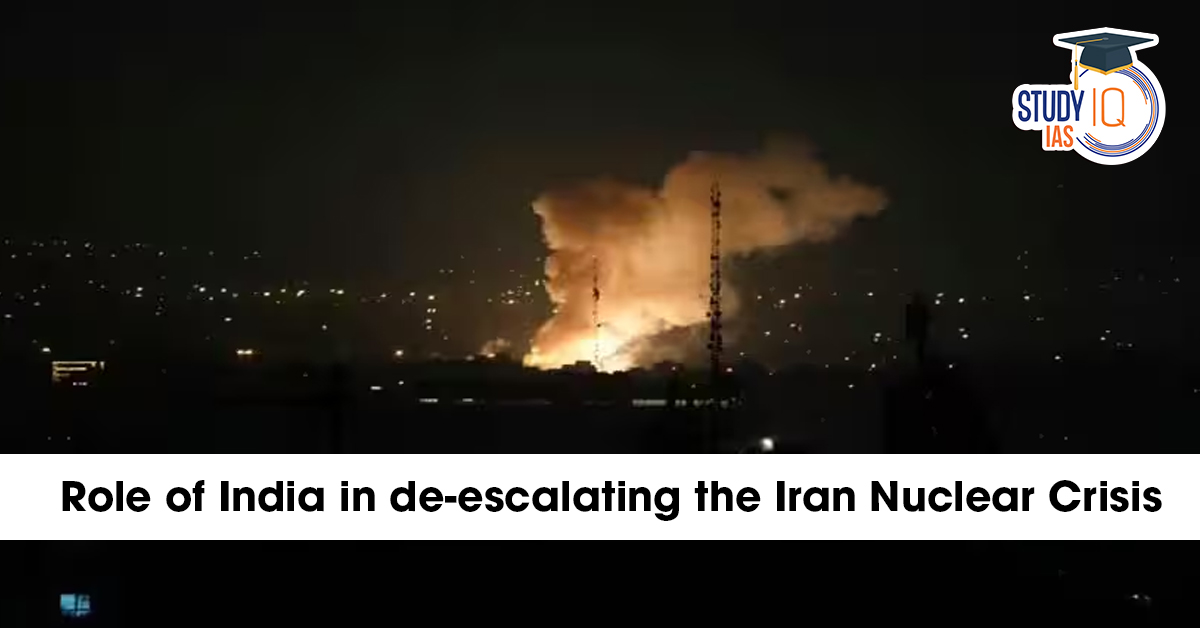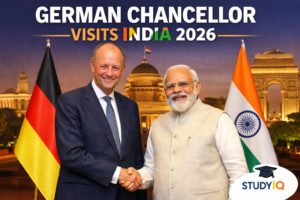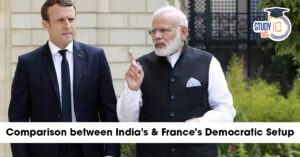Table of Contents
Context: The strikes on Iran’s Fordow nuclear facility by the United States in June 2025, followed by the E3’s activation of the snapback clause of the 2015 JCPOA, have reignited tensions around Iran’s nuclear programme.
Global Stakes: An IR Perspective
Challenge to Multilateralism
- The E3’s (UK, Germany, France) invocation of the snapback clause is a test of the credibility of international agreements.
- If the JCPOA collapses, it could weaken the norm of negotiated arms control and encourage other states to defect from multilateral arrangements.
U.S. vs. Revisionist Powers
- US is trying to frame the crisis as a litmus test for the non-proliferation regime, seeking to reaffirm its primacy.
- Russia and China, however, view the situation as an opportunity to erode U.S. dominance, strengthen ties with Tehran, and project themselves as alternative power brokers.
Regional Security Architecture in Flux
- Israel and Gulf monarchies see Iran’s nuclear trajectory as an existential threat, pushing the region closer to a security dilemma – where one state’s pursuit of security increases insecurity for others.
- This increases the likelihood of preventive strikes or proxy escalations in West Asia.
Energy Geopolitics
- With 20% of global oil trade passing through the Strait of Hormuz, instability risks global economic shockwaves.
- Import-dependent economies (India, Japan, EU) face price volatility, while exporters (Russia, Gulf states) may gain leverage.
Non-Proliferation Regime Credibility
- If Iran exits the NPT in response to snapback measures, it would be the first major defection since North Korea (2003), dealing a serious blow to the global non-proliferation architecture.
- This could trigger a domino effect, with other states recalculating their nuclear options.
| Gap in Verified Facts |
|
Iran’s Strategic Concerns
- Sovereignty vs. Rules: Iran argues that its sovereignty is more important than treaty commitments. It sees inspections as security risks.
- Past Experience: Israeli and U.S. strikes in the past came soon after IAEA disclosures, making Iran mistrustful of inspections.
- Ambiguity as Leverage: By keeping details vague, Iran gains bargaining power in talks, a tactic known in game theory as “strategic opacity.”
- NPT Exit Threat: If Iran leaves the Nuclear Non-Proliferation Treaty (NPT), it will weaken IAEA authority and global nuclear norms.
What Role Can India Play?
Diplomatic Mediation
- As a long-standing IAEA Board member, India enjoys credibility across divides.
- Within SCO and BRICS (both including Iran), India can support calls for restoring IAEA access, framed as Iran’s sovereign choice rather than an external concession.
Technical Contributions
- India’s IAEA-certified Tarapur facility can undertake nuclear sample analysis under safeguards, enhancing transparency while respecting Iran’s sensitivities.
- Sharing expertise on safeguards could strengthen Iran’s civilian claims.
Voice of the Global South
- By aligning with Global South perspectives, India can argue for balanced verification that protects sovereignty while ensuring compliance.
Protecting Own Interests
- Energy Security: Ensuring stability in oil flows through the Strait of Hormuz.
- Diaspora Security: Safety of 8 million Indians in West Asia.
- Regional Stability: Preventing escalation in India’s extended neighbourhood.
Image as a Responsible Power
- Active involvement enhances India’s claim of being a norm entrepreneur in global nuclear governance.


 German Chancellor Visit to India in 2026...
German Chancellor Visit to India in 2026...
 H1B Visa Program, Beneficiaries, Eligibi...
H1B Visa Program, Beneficiaries, Eligibi...
 Comparison Between India & France's ...
Comparison Between India & France's ...

























